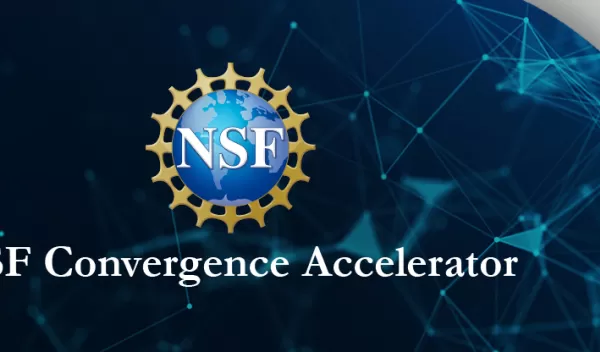
Delivering societal impact through quantum- and AI-driven data and modeling research
The U.S. National Science Foundation has selected 29 teams for its Convergence Accelerator program, a new NSF initiative designed to accelerate use-inspired research to address wide-scale societal challenges. The 2020 cohort addresses two transformative research areas of national importance: quantum technology and artificial intelligence.
NSF is investing more than $27 million to support the teams in phase one to develop the solution groundwork for Quantum Technology, and AI-Driven Data and Model Sharing to ensure that technological advancements have a positive impact on society.
Over the next nine months, the teams will work to build a proof-of-concept for their solutions by using fundamentals from the Convergence Accelerator's model and curriculum such as: multidisciplinary partnerships between academia, non-profits, government, industry, and other sectors; human-centered design thinking; team science; early-stage prototyping; pitch preparation; and use-inspired research, which engages the end-user early in the design process to ensure the solutions address issues of significant national impact.
"The quantum technology and AI-driven data and model sharing topics were chosen based on community input and identified federal research and development priorities," said Douglas Maughan, head of the NSF Convergence Accelerator program. "This is the program's second cohort and we are excited for these teams to use convergence research and innovation-centric fundamentals to accelerate solutions that have a positive societal impact."
- The Convergence Accelerator's Quantum Technology topic complements the NSF's Quantum Leap Big Idea and aligns with the National Science and Technology Council (NSTC) strategy to improve the U.S. industrial base, create jobs and provide significant progress toward economic and societal needs. Eleven teams within the cohort are developing wide-ranging solutions for future workforce development, to prepare students entering the workforce and reskill and upskill the current workforce. By accelerating the development of quantum sensors and interconnects, the teams expect to deploy new technologies in a variety of applications, such as autonomous vehicles and healthcare.
- The Convergent Accelerator's AI-Driven Innovation via Data and Model Sharing topic involves 18 teams concentrating on solution development. These projects complement NSF's Harnessing the Data Revolution Big Idea and the NSTC National AI Research and Development (R&D) Strategic Plan to target R&D investments in priority areas of AI. These research teams will also address a variety of data and model-related challenges and data types to include platform development to enable easy and efficient data matching and sharing; and privacy protection tools and processes to ensure sensitive data is secure.
Convergence Accelerator research topics begin as an ideation process - gathering input from the community. Identified topics must meet a societal need at scale, be built upon foundational research and be suitable for a multidisciplinary, convergence research approach.
At the end of phase one, the 2020 cohort teams will participate in a pitch competition event. The oral pitch and formal proposal will be used in selecting teams for phase two.
More information about the Convergence Accelerator can be found on the NSF's website: https://www.nsf.gov/od/oia/convergence-accelerator/index.jsp.
